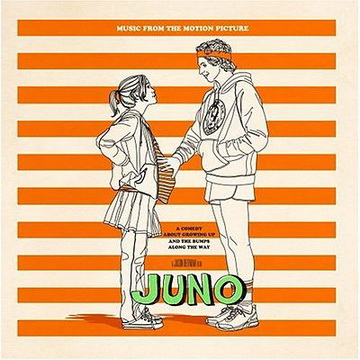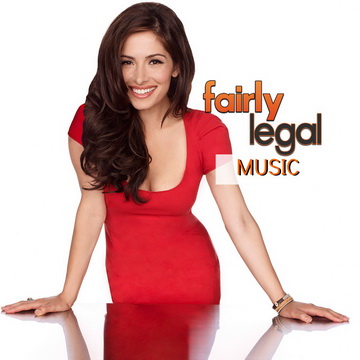Mateo Messina's name is familiar to film music fans by the music of the worldwide famous box-office hit Juno, and also with the television series Fairly Legal, which produced by Universal. The composer and songwriter spoke about the beginning of his career from the short films to the movies and TV-series, his upcoming projects, and also his charity concerts.
How did you get into the world of movie scores and how much was it conscious on your part to turn to this genre?
I was very intentional about becoming a film composer. I moved here to Hollywood when I was in my 20's with my sites on becoming a great composer. I began by scoring short films for a company called Atomfilms back at the turn of the century. They had a lot of great short films with unlicensed music so they weren't able to broadcast them. I built a small enterprise out of offering to re-score those sections or the whole short so they could distribute it. After I did so many of them, I became known for writing inventive scores for short films and went on to work for a division of Universal and another for Fox whom were making and distributing short films at the time. During this time I met many young, talented filmmakers and worked with them on their films. As they grew in their careers and went onto make bigger films they asked me to do them as I did good work for them on their shorts.
Which is the movie genre that you feel closest to, where you can work the most comfortably?
It's not labeled as a genre, but when I write for anything that has a heart, any story where you can get behind the character and share in their emotion, I feel comfortable. My goal when writing for emotional content is to never write anything "on the nose." I prefer to write music that plays wide enough to give a place for people to feel if they choose, but never telegraph a particular emotion. It's a little tricky to do as I'm always hyper conscious of tone, pacing, timing, continuity, & themes. I tend to score comedies more than any other genre of films. I just love the ones with heart.
 Among others your name brands the score of the 2007 hit movie Juno. Could you tell us about this project?
Among others your name brands the score of the 2007 hit movie Juno. Could you tell us about this project?Juno was a gift of a project. My oldest brother and his wife were about to adopt when I read the script and were going through the adoption process around the same time I was on the film. This made the project very special to me. As well, I was very happy to be working with Jason Reitman for the first time as I truly respect him as a person, a writer, and a director. He's a great storyteller. Writing for the film was a great experience as it felt like the right music for Juno even though it was probably somewhat risky to not be writing a traditional score. Jason had great direction for the score and intuition into what he wanted his film to sound like and I was happy to be writing on it. It was one of my first bigger films and I was knew it was something special from the day I was introduced. I remember being at the Toronto Film Festival for the premiere and visiting with the rest of our team after a Q&A and thinking "we made a cool, indy film. This will probably play at those neighborhood theaters that only run obscure independent films." Then it became a hit and that was a gift.
You wrote songs for both Thank You for Smoking and Up in the Air. In your opinion, how important is it that instead of popular radio hits the scenes include their own scores?
I wrote additional music on both of those films. Rolfe Kent wrote really nice scores for both Up In the Air & Thank You for Smoking. I really enjoyed writing for some of the scenes of those movies. If I understand your question correctly, I want to say that I don't care if it comes through score or an existing source cue, if it plays the scene effectively and it's doing it's job on an emotional front, then wherever it comes from is fine. In my experience I've found that well placed songs are incredibly effective. Scores are much better for continuity and I feel we can musically get deeper into the story this way. Many films I've scored recently have asked for both songs and score. One of the reasons I am asked to write scores is I've learned to blend those songs into the fabric of the score so it all feels like it's coming from the same place. When you can do this effectively the audience will be able to become more easily engaged with the film.
After Juno, you once again have the opportunity to work together with Jason Reitman on this year's Young Adult. How much more freedom does it give you that you already know each other's work style and expectations?
Similar to Thank You for Smoking & Up In the Air, I've written additional music to another one of Rolfe Kent's great scores. The music I've written for Young Adult was a really fun and very different style of project for me. I can't wait for the world to hear these pieces of music as they are truly ironic. As for your question about freedom in working with a director multiple times, it is so much easier to collaborate a second, third, and every time after the first time. The reason is you learn your director's style, from tone to work flow down to the nuances of what they're going for musically. Even more, you build up a short hand and there is a feeling of trust built so the job becomes easier on both sides of the equation.
 How did you create and what preparations did it take to make the score for Fairly Legal?
How did you create and what preparations did it take to make the score for Fairly Legal? I spent a little over a month creating the sound of Fairly Legal. I wrote around 70 or 80 ideas in those first few weeks. Sometimes I wrote to picture, other times I wrote from the individual character's perspectives. I sat down with the creator and producers many times and picked their brains on who these characters really were. The reality is I can interpret who believe those characters are or I can just ask the creator what makes them tick, the subtext, their fears, what are they confident in, all sorts of questions that feeds my creativity when creating the tone for the show. It was a fun process, although at times tough too. Once the producers were happy with the sound of Kate & the rest of the motifs, I felt confident moving forward scoring any scenes for the show.
Besides movies and TV series, you also composed music for companies such as Microsoft, Volkswagen, Honda, The North Face and Ford. In what ways do these kinds of jobs differ from that of the movies?
Commercials are much faster paced processes than films or TV. I like that you are now trying to convey an emotion and develop a theme in .30 seconds. Each bar of music is scrutinized much more in this medium as there are a lot of chiefs and not many indians in the ad agency business. I enjoy doing them as much as I do films, but for very different reasons. In films & TV, I am introducing themes, developing them, twisting and turning my way through a story all for the intention of helping a director tell a story. There is a lot of time to expand on a motif when your format is 90 minutes on a film or 40+ minutes on a show. But in commercials, it's "get to the point," create the tone, be interesting, creative, keep a good pace, be emotional, be a dozen different things with music in .30 seconds.
 How much more difficult or easier are these?
How much more difficult or easier are these?I enjoy both equally and the only part I find more difficult in commercials is just not having the luxury to develop a theme over time. But, I find them both challenging and I like that.
Each year you organize a charity concert for the benefit of the Seattle Children's Hospital & Regional Medical Center called The Symphony Guild. How long have you had these concerts and how difficult do you find it to organize them and to find time for it while you also work?
I'm currently writing my 14th symphony and organizing my team to produce another solid fundraiser. We raised 203,000 last year & my goal is to raise 250,000 this year. I write my concerts in-between film & TV projects. They feed off of each other. Some years I'll be inspired by a motif I wrote for my concert and use it in a film. More often, I'll try out ideas for a film in my concerts. I love writing for the orchestra and choirs, even more I love dreaming up ideas that have no limits, nobody asking for changes or rewrites. I just put my heart into the concerts as much as I do when I write for a film, but in this case it's performed for big audiences. It feels like art for the sake of art, but I'm happy it has a purpose and helps families at Children's Hospital.
Is there any project you would really love to do? A theme you would like to write score for, or a director you would like to work together with?
To be honest, I'm loving doing the projects that come my way these days. They are all different; some are studio films, some are independent, some are tv shows for networks & others are for cable, yet they are all interesting. I would love to try a superhero film soon. I wrote a concert 2 years ago called Symphony of the Superhero, after which I went to Europe and recorded a fantastic orchestra and choir. It's a lot of fun to write for this style and i enjoy the drama & action in superhero saga.
To know more about Mateo Messina, please visit the composer's official website.
Special thanks to Ashton Lunceford
July 13th, 2011.
July 13th, 2011.








